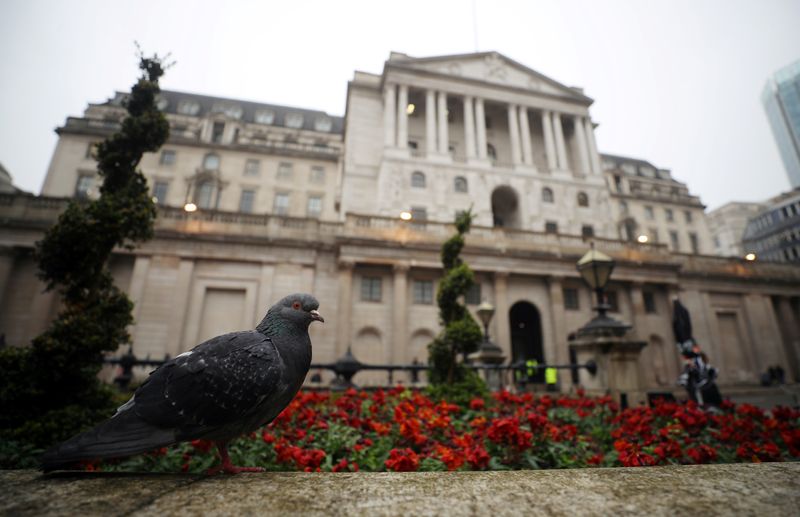By David Milliken and William Schomberg
LONDON (Reuters) -Britain's finance ministry named Catherine Mann, until recently the global chief economist at Citibank, to be the newest member of the Bank of England's Monetary Policy Committee as the central bank navigates its way past the COVID pandemic.
Mann's three-year stint on the nine-member panel - which sets interest rates and oversees the BoE's 895 billion-pound ($1.24 trillion) bond-buying programme - will begin on Sept. 1. She replaces Gertjan Vlieghe, who is stepping down after six years.
"I am very happy to announce the appointment of Dr. Catherine L. Mann," British finance minister Rishi Sunak said. "Her breadth of experience across policy, research and the private sector will be immensely useful to the MPC."
The finance ministry also said that Jonathan Haskel, an economics professor at London's Imperial College Business School, would serve a second three-year term. External members of the MPC can serve a maximum of six years.
The BoE is looking for a new chief economist too, after Andy Haldane - the central bank's biggest worrier about inflation - announced his resignation in April.
Before her three years at Citibank, Mann served as chief economist at the Paris-based Organisation for Economic Co-operation and Development between 2014 and 2017. She was an economist at the U.S. Federal Reserve between 1984 and 1997.
The American joins the British central bank as it tries to steer the world's fifth-biggest economy away from the coronavirus crisis with record levels of monetary stimulus, without triggering a sustained jump in inflation.
In a Citi research note published on June 10, which Mann co-authored with another Citi colleague, she wrote about the inflation challenges that recovery from COVID-19 was posing to central banks around the world.
"Global inflationary pressures from the supply side spread almost simultaneously through production linkages, given that the global production structure is highly inflexible in the short run," the note said.
"There may be spillover effects of supply-side constraints and inflation pressures across different sectors in the U.S., but right now it is too early to call," Mann and colleague Aaron Liu wrote.
In comments in February, Mann stressed that the key issue for central banks fighting inflation was whether businesses had enough power to raise the prices they charge consumers, or if increased costs are absorbed into profit margins.
Many businesses had reported reduced pricing power due to global and online competition, she added.
The BoE said last month it expected inflation to reach 2.5% at the end of this year but to fall back towards its 2% target in 2022 as supply-chain bottlenecks and base-effects from last year's COVID-depressed prices faded.

Mann's appointment will increase the number of women serving on the MPC to two, as she joins Silvana Tenreyro. British lawmakers have criticised the finance ministry for the low number of women appointed to senior roles at the BoE.
($1 = 0.7192 pounds)